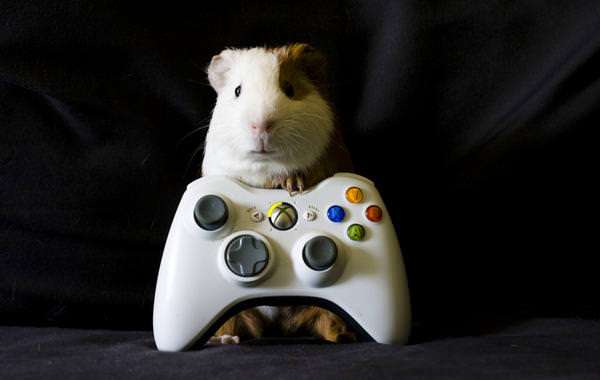Worried About Privacy? Don't Fear the Xbox. Fear Government Surveillance.

Should privacy-conscious gamers be worried about Microsoft's new video game console, the Xbox One? As MSNBC's Benjy Sarlin reports, gamers are concerned that the voice and motion sensors on the newly announced game system, which is set to go on sale in November, could be abused in light of recent reports that the National Security Agency (NSA) has collected user data from a host of tech giants, including Microsoft.
The new Xbox features an upgraded version of the Kinect, a fairly advanced sensor system that, in addition to listening for voice commands, also senses body motion, recognizes faces, and can even detect changes in a player's heart rate. As Ed Krayewski noted last month, worried gamers fear that some or all of this data could be targeted for collection and analysis by government surveillance authorities.
A bit of caution here does not seem entirely unreasonable to me, especially considering that, according to a leaked PowerPoint slide, Microsoft was the very first company to participate in the NSA's tech-industry data sharing program, PRISM.
But I don't think anything about the Xbox One is especially worrying. For one thing, Microsoft seems to be taking steps to attempt to address privacy concerns. In privacy control guidelines released earlier this week, the company said that Xbox One owners will have control of what the Kinect can see and hear, including the ability to turn the Kinect sensors off. Nor, the company says, will any personal data leave the console without the player's "explicit permission." Federal surveillance authorities can't easily mass-collect large amounts of user data if it doesn't leave individual systems.
More generally, I'm not convinced there's any reason to single out the Xbox One relative to a lot of other devices. Most smart phones and tablets come equipped with cameras and microphones already, as do many laptop computers. And unlike the Xbox One, which is likely to stay planted in your living room most of the time, those devices are portable—which means that they also potentially enable location tracking. Those devices are also more likely to be used for sensitive personal and business communications—with colleagues, for example, or banks—than a gaming and media hub like the Xbox One.
Lastly, and most importantly, I think it's a mistake to focus on the technology rather than on the snooping. If you're worried about government surveillance—and you should be—then the problem is government surveillance, and the many laws and legislators who enable it. Most people understand this intuitively with mobile phones. The problem with the FISA order giving the NSA permission to collect call data on Verizon customers isn't the existence of phones, mobile networks, or voice communications technology. It's that the government is secretly collecting all of that data. Very few people really think that the best response has anything to do with, say, getting rid of phones or eliminating useful phone-based features.
This is broadly how we ought to think about new products like the Xbox One. To some extent communications technology is always going to present opportunities for worrisome government snooping. In the old days it was mail and credit cards and landlines; now it's smart phones and Xboxes. But the right reaction isn't to fret about whatever nifty new consumer product hits the market. It's to look for ways to block, expose, or otherwise push back against government efforts to utilize those products to track our activities in an inappropriate manner. The problem, in other words, isn't the technology; it's the surveillance.


Show Comments (48)